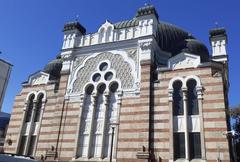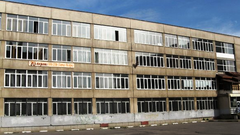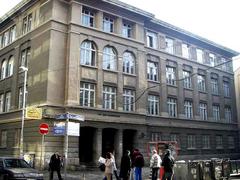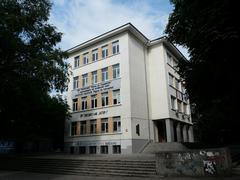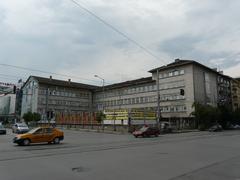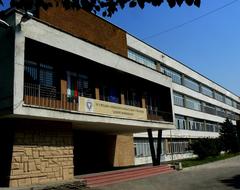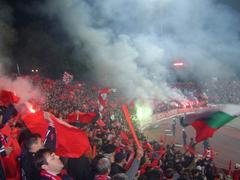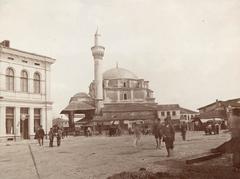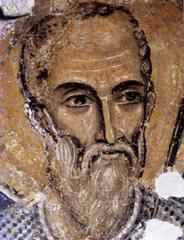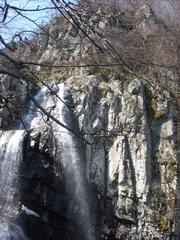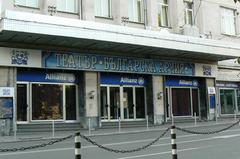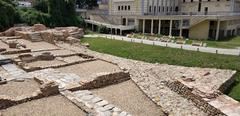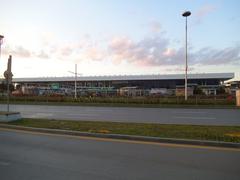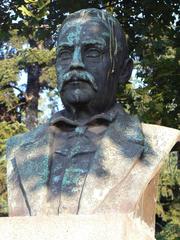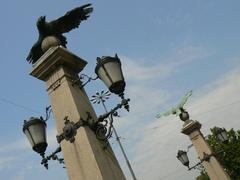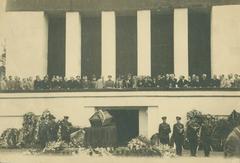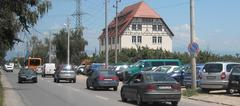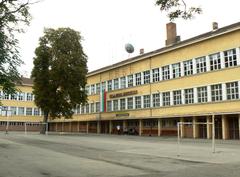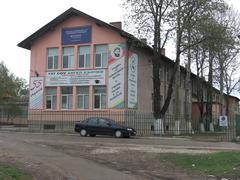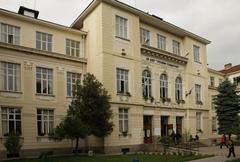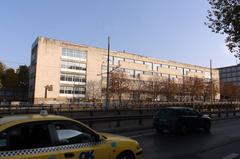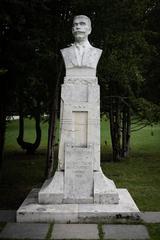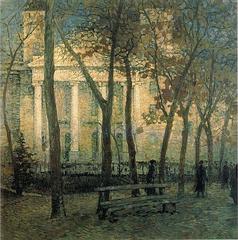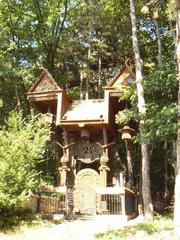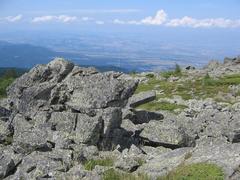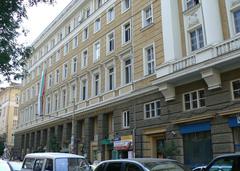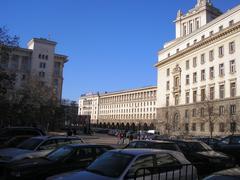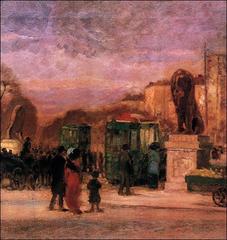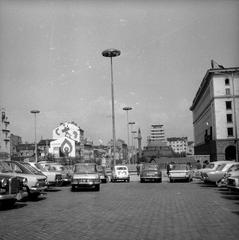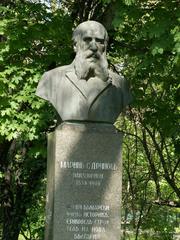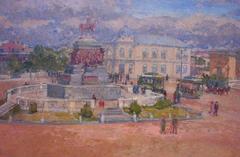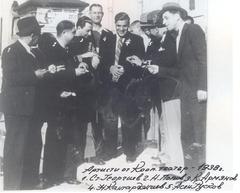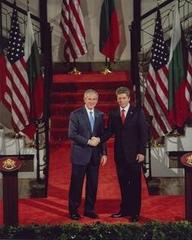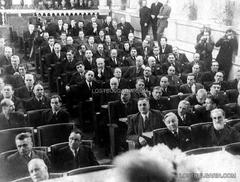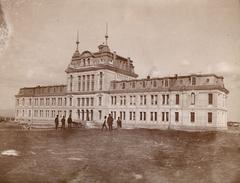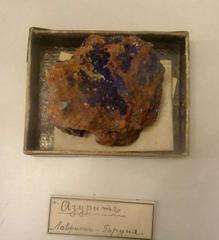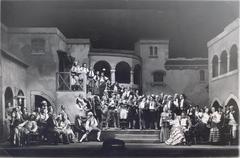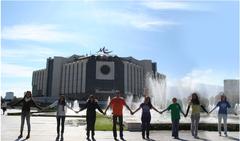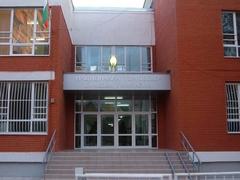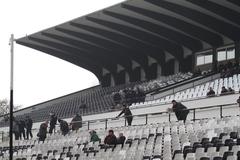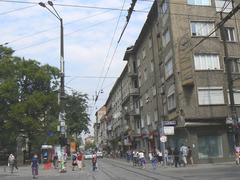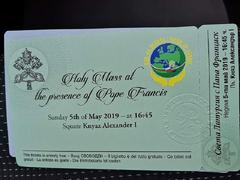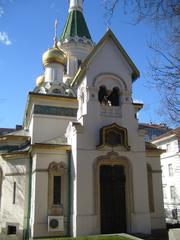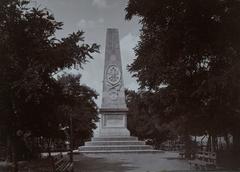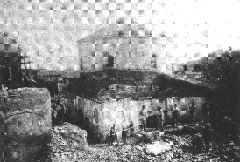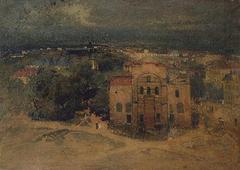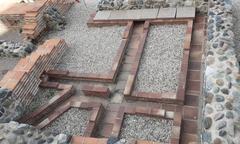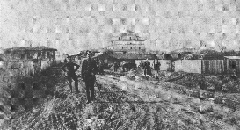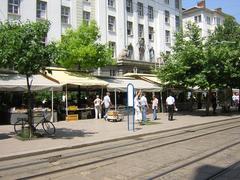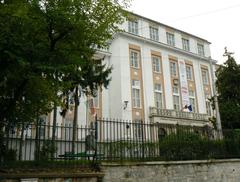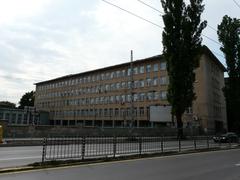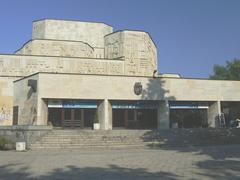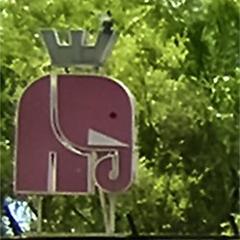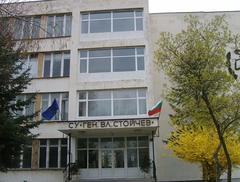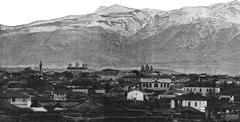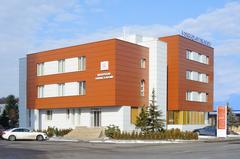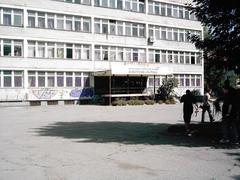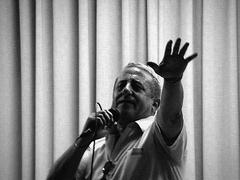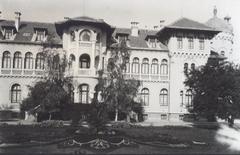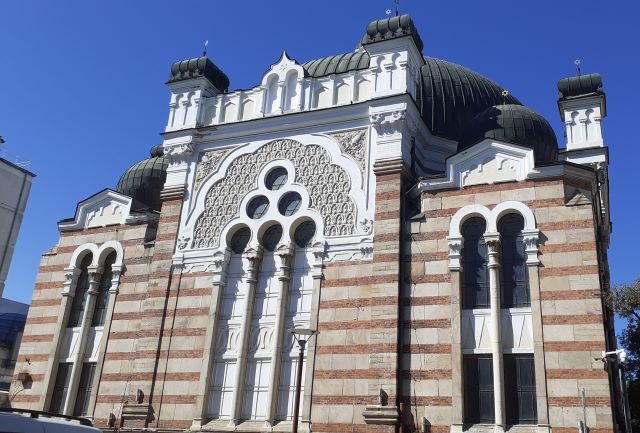
Sofia Synagogue: Visiting Hours, Tickets, and Comprehensive Visitor Guide
Date: 14/06/2025
Introduction: The Sofia Synagogue and Its Cultural Significance
Nestled in the heart of Bulgaria’s capital, the Sofia Synagogue is a monumental symbol of Jewish heritage, architectural beauty, and cultural resilience. As the largest Sephardic synagogue in Europe and the third largest on the continent, it stands as a testament to over a century of history, intertwined with Bulgaria’s national identity and Sofia’s multicultural spirit. Designed by the esteemed Austrian architect Friedrich Grünanger in the early 20th century, the synagogue fuses Moorish Revival, Byzantine, and Viennese Secession styles, mirroring both the Sephardic Jewish tradition and the cosmopolitan influences that have shaped Sofia (BNR.bg; balkankaleidoscope.com).
More than just an architectural marvel, the Sofia Synagogue is a living monument to the endurance and vibrancy of Bulgaria’s Jewish community. Since its grand inauguration in 1909, the synagogue has occupied a central role in religious, civic, and cultural life. Its location within Sofia’s celebrated “Square of Tolerance”—alongside an Orthodox church, a Catholic cathedral, and a mosque—underlines Bulgaria’s longstanding tradition of religious coexistence (bulgaria-infoguide.com; sofia-guide.com).
For today’s visitors, the Sofia Synagogue offers a chance to marvel at stunning mosaics, stained glass, and the Balkans’ largest brass chandelier, as well as to engage with Bulgaria’s Jewish history through its museum and cultural programming. This guide provides detailed information on visiting hours, ticketing, accessibility, and tips for exploring Sofia’s historical sites.
Table of Contents
Historical Overview
Origins and Construction
The Sofia Synagogue was built during a period of national revival after Bulgaria’s liberation from Ottoman rule. At the time, Sofia’s Jewish community—numbering around 10,000 people—envisioned a grand synagogue that would reflect both their historical presence and their aspirations for continued coexistence (BNR.bg). Architect Friedrich Grünanger was commissioned to design the building, drawing inspiration from the Sephardic synagogue in Vienna. Construction began in 1905, and the synagogue was completed in 1909 with a capacity for over 1,100 worshippers (Cestee.com).
Architectural Features and Artistic Heritage
The Sofia Synagogue is a masterpiece of architectural fusion. Its Moorish-style façade, horseshoe arches, geometric patterns, and imposing central dome—19 meters in diameter—create a striking silhouette in Sofia’s cityscape (balkankaleidoscope.com). The interior features elaborate wood carvings, Venetian mosaic floors, intricate marble columns, and stained glass crafted by Italian and Bulgarian artisans. The centerpiece is the massive brass chandelier, weighing over two tons and ranking among the largest in Europe (bulgariafocus.com). These artistic elements underscore the community’s desire to blend tradition with modernity.
Inauguration and Early Significance
The synagogue’s consecration in September 1909 was a milestone for both Bulgarian Jews and the nation. Dignitaries from across Bulgaria attended, and the event marked the integration and respect of the Jewish community within Bulgarian society (BNR.bg).
Wartime Challenges and Restoration
During World War II, the synagogue was damaged by bombing, with the destruction of its library and stained glass windows (BNR.bg). Post-war emigration reduced the Jewish population, but the synagogue remained a spiritual and cultural anchor. Restoration efforts, especially around its centenary in 2009, revitalized both structure and spirit (bulgariafocus.com).
Role in Interfaith Coexistence
Located in Sofia’s “Square of Tolerance,” the synagogue stands beside the Banya Bashi Mosque, St. Nedelya Orthodox Church, and Saint Joseph Catholic Cathedral, symbolizing Bulgaria’s tradition of religious harmony (sofia-guide.com). The synagogue continues to play a vital role in interfaith dialogue and community outreach.
Contemporary Significance
Today, the Sofia Synagogue is an active house of worship and a vibrant center for Jewish life. Services are conducted in Hebrew, with traditional Ladino chants, and the synagogue hosts religious celebrations, cultural events, and educational programs (BNR.bg). Its museum and ongoing restoration efforts ensure that the legacy of Bulgaria’s Jewish community is preserved and shared with visitors from around the world.
Visitor Information
Opening Hours and Tickets
- General Visiting Hours:
- Monday to Friday: 9:00 am – 5:00 pm
- Sunday: 9:00 am – 5:00 pm
- Saturday: Closed (Shabbat)
- Museum Hours: May differ; check the official website for updates.
- Admission Fee: Approx. 5–10 BGN (about 2.5–5 EUR), discounts available for students and seniors (Cestee.com; sofiasynagogue.com)
- Tickets: Purchase on-site or via the synagogue’s official website. Guided tours can be arranged in advance.
Accessibility and Visitor Tips
- Wheelchair Access: The synagogue is wheelchair accessible, with ramps and adapted facilities.
- Security: All visitors must ring the entry bell, state their purpose, and undergo a security check.
- Dress Code: Modest clothing (shoulders and knees covered) is required. Men may be asked to wear a kippah (provided on-site).
- Photography: Permitted in most areas, but avoid flash and respect restrictions during services.
- Language: Information and guided tours available in English and Bulgarian.
Nearby Attractions
The synagogue is centrally located, close to:
- Banya Bashi Mosque
- St. Nedelya Orthodox Church
- Saint Joseph Catholic Cathedral
- Alexander Nevsky Cathedral
- Central Market Hall and the Largo complex
This proximity makes the synagogue an essential stop on any cultural and historical tour of Sofia (theworldwasherefirst.com).
Museum and Educational Resources
The Jewish Historical Museum, located within the synagogue, features permanent exhibits on Bulgarian Jewish communities, the Holocaust, and synagogue architecture (jguideeurope.org). Educational programs and temporary exhibitions are regularly offered, and guided Jewish heritage tours are available.
Frequently Asked Questions (FAQ)
Q: What are the Sofia Synagogue’s visiting hours?
A: Monday to Friday and Sunday, 9:00 am to 5:00 pm; closed on Saturdays.
Q: How much is admission?
A: Entry is generally 5–10 BGN (approx. 2.5–5 EUR); discounts for students, seniors, and groups.
Q: Can I book a guided tour?
A: Yes, guided tours are available and highly recommended for deeper insights.
Q: Is the building accessible for wheelchair users?
A: Yes, with accessible entry points and facilities.
Q: May I take photos inside?
A: Photography is allowed in most areas, but be respectful and avoid flash during services.
Q: Are there special events or services open to the public?
A: Yes, the synagogue hosts religious and cultural events—check the official calendar for updates.
Planning Your Visit
- Location: 4 A. O. Shenshko Str., 1202 Sofia, Bulgaria (sofia-guide.com)
- Transport: Easily accessible by public transit, taxi, or on foot from central Sofia.
- Combine Visits: Take advantage of the synagogue’s location in the “Square of Tolerance” and explore nearby landmarks.
- Best Time: Weekday mornings for a quieter experience; avoid Jewish holidays unless attending special events.
- Visitor Etiquette: Maintain respectful behavior, especially during religious services.
For the latest updates, ticket information, and virtual tours, visit the official site (sofiasynagogue.com).
Visuals and Additional Resources
Summary: Why Visit the Sofia Synagogue?
The Sofia Synagogue is not just an architectural masterpiece—its very existence is a testament to faith, resilience, and interfaith harmony in Bulgaria’s capital. Its blend of Moorish, Byzantine, and Viennese elements, alongside exquisite interiors and a vibrant cultural program, make it a must-see for any visitor to Sofia (bulgariafocus.com; BNR.bg).
Located within the “Square of Tolerance,” the synagogue embodies Sofia’s tradition of religious coexistence and multicultural heritage. Ongoing restoration ensures it remains accessible and inspiring for future generations (jguideeurope.org; sofia-guide.com).
Enhance your visit using virtual tours and the Audiala app for guided experiences and insider tips. Discover the living legacy of Sofia’s Jewish community and celebrate Bulgaria’s rich cultural tapestry.
References
- BNR.bg
- balkankaleidoscope.com
- visitbulgaria.com
- bulgariafocus.com
- Cestee.com
- sofiasynagogue.com
- jguideeurope.org
- sofia-guide.com
